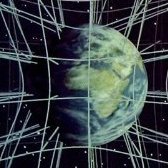Leaderboard
Popular Content
Showing content with the highest reputation on 07/12/18 in all areas
-
Er, no. the whole point is that if something works, we don't need to use belief. For example your computer works, because the underlying technology works, because the underlying science works. Of course, you are free to believe that your computer doesn't work, but the facts would seem to contradict that belief. On the other hand, when it comes to religions and gods, there is no evidence that they "work" in any practical sense (beyond giving some people a feeling of comfort). And so they depend entirely upon belief. Hop away. But if there is something you don't understand, why not ask.2 points
-
1 point
-
1 point
-
Not always. The Japanese concept of kami, which is nearly always translated as "god", is definitely not like that. Other pantheistic religions have their own concepts of god which are very different from the Abrahamic idea.1 point
-
1 point
-
1 point
-
1 point
-
How so? Please elaborate, what do atheists have faith in exactly? Please elaborate what what do atheists have faith in exactly? A side question if I may, why do you think this passage has any real world meaning?1 point
-
So whats the difference between a miniature Yeti in your closet and the existence of god/gods? They both seem to have an equal amount of evidence going for them which is zero. Why would one be treated as plausible and the other as ridiculous?1 point
-
In chemistry process of production of certain chemicals is named after people who the first one used their process. It's much easier to say what you have on mind using "Haber process" than having to say "process in which ammonia is produced from gaseous Nitrogen from air and Hydrogen from methane".. calling it "process of production of ammonia" is not enough to describe it, as there is many different ways to do it. There is existing such "hall of fame". Nobel prize laureates. https://en.wikipedia.org/wiki/List_of_Nobel_laureates1 point
-
You can believe what you want, it has nothing to do with continued reliability of producing effective results as Matt Dillahunty once stated.1 point
-
OK, so I solved the problem for a spherical guitar, and Bender solved it for the case where you only drop the guitar (and case) in a muddy field or above a vat of cold porridge. I wonder which of those is less use.1 point
-
I can speak for myself, I lean towards science or „intellectualism” like you call it because it works. It has nothing to do with faith and worshiping, simply its science that makes airplanes fly and computers work and it doesn’t work only for me, it works for you too. In case you haven’t noticed, the device you used to post your ignorant post above works because of science not religion.1 point
-
I assume that the creation of electron-positron pairs then also cost ~7.64% of the energy of the sun (or the Beta+ decay of protons). So the net effect is zero.1 point
-
Sounds like a pretty good argument against the intervention of any conscious creator to me. The other issue - which seems to go ignored here - is that there is no reason to believe that only one of these universe has been realised. In other words, these arguments all rely on the assumption that our own universe is the only one there is, hence the unlikelihood of its precise properties. But this is not how I understand it - in the primordial quantum foam, all possible universes are realised; and of course only some of them will evolve into macroscopic universes such as the one we are in (since that requires a specific set of conditions), the rest will immediately collapse again and vanish. But if all possibilities are realised, then there is no problem with improbabilities - our universe then is what it is only because we are here to ask the question. If we were any different, we’d find ourselves in a different universe, or if the universe were different, we’d be a different species, or not exist at all. Either way, there is no need for any “outside” intervention - such a concept isn’t even meaningful.1 point
-
While I don't doubt that some atheists have some faith in things other than god, I would like to see some evidence to support your claim that "atheist have far more faith than theists". What do you base this on? And what definition of "religious" are you using when you say that "atheists are as religious as theists"? While it is true that "atheist" means not believing in a god, there are few religions that do not have a god or gods, so I find it implausible that atheists are as religious as theists. Do you have any evidence to support this claim? What "faith" are you referring to here?1 point
-
I don't see how the math/statistics support that. Family of 4 poverty level is just under $25k of income. That's the 18th percentile of household income. Those are the people getting net BUI. It may even go higher than that, but these are the target. https://www.peoplekeep.com/blog/2017-federal-poverty-level-guidelines https://en.wikipedia.org/wiki/Household_income_in_the_United_States#Distribution_of_household_income_in_2014_according_to_US_Census_data The 82nd percentile, i.e. the other end, is $125k a year family income. That can be quite comfortable, depending on where you live (in big cities that's not that well off) but that's not kids-lounging-about-at-home rich. $250k a year is the 94th percentile. Also, I think that your look at the benefits is far too narrow a scope. People being healthier are less of a burden on the system. Lower crime rates are less of a burden on the system. The universality of the income reduces bureaucratic load on the system. A safety net for entrepreneurs fosters innovation. Worker conditions would improve if workers could leave bad (exploitive or dangerous) situations. You have to look at net instead of gross. I don't see it as giving everyone money, when they pay more than the BUI in taxes. If I hand you $10 and you hand me $20, do you consider that I have given you $10, or is it the other way around?1 point
-
Two things, even assuming preference for cold water, you would not know whether it was due to microbial avoidance or some other aspect that makes us enjoy it (either directly the temperature or taste). Second, as I mentioned in other mammals such as rats it is known that they prefer warmer water. Except when they are overheated, then they prefer cold and after sufficient hydration prefer warm again. The general preference, however, is below body temp (which has room for much simple speculations). Even so you seem to have a lot explanations that do not add up. E.g. if bacterial avoidance is the only or main reasons, then why is the preferred temp at 12-16 rather then lower, where we have more effective bacterial inhibition? If certain taste preferences can be learned why do you think is it only true for certain cases and not for others? Why do you think that there must be a overriding evolutionary mandate, if on the other hand simple peer pressure can eliminate it? As a rule of thumb, simple explanations without evidence have to face scrutiny and should not be taken at face value. Otherwise it is too easy to make some overarching just so stories, sometimes with rather nasty consequences (though arguably not in this case). Yes eating or drinking cold helps lower body temperature. The hot drinks in hot temperature is not complete rubbish, but works only in certain circumstances and it does not work for dogs. The basis is this, increasing temperature by drinking hot beverages (or soup) can cause a disproportionate amount of sweating (relative to ambient temp increase). Provided that the resulting sweat can evaporate effectively it can lower your temperature more than drinking cold beverages. However, if sweating is not effective in cooling (e.g. high humidity or having lots of clothing) it won't work. Likewise, dogs do not cool down by sweating and hence, would not have a positive effect.1 point
-
I resolved my error myself. I was thinking of the distance from the leading end or leading object to it's destination 'B" to a statioonary observer as being a static measurement. I didn't consider that the length L would be shrinking to him as the speed increased. Also Wiki gives 3 ways of calculating L. The (x2-x1)gamma I've seen before and used before. My text or other sources don't use this. It leads to errors.1 point
-
I have to disagree here. I think Russian influence made the difference in both the Brexit vote and the US presidential election. Both were just that close, and whether or not the feelings were present is immaterial. Those feelings were exploited by Putin's troll farms and pro-authoritarian/anti-immigrant media campaigns with the intent to disrupt and skew. I don't think the UK would have voted to leave the EU, and the US wouldn't have elected Trump, without the Russian involvement. When a bad actor knows just the right buttons to push to goad someone into a fight, and they do it and a riot ensues, we hold them responsible for incitement, right?1 point
-
1 point
-
Despite claims, that's not evidence. That's some words you can write on a piece of paper -- meanwhile, the Higg's Boson wasn't proven until someone found it. Or, you don't understand the physics you're trying to describe. Some pathetic attempt at trying to poke holes in Penrose & Lennox and my responses. To all of you on here, it isn't a failure to understand basic probability. You're all failing to understand the gravity of the probability. Ironically, it is you that exhibits ignorance by criticizing the argument as being ignorant when you don't fully understand it. Perhaps you should do some research surrounding it so you can have a more informed conclusion about it. And no, the argument isn't refuted by the anthropic principle. The anthropic principle is a philisophical consideration and nothing more, and it requires numerous prerequisites to use. If you're going to cite principals, at least know what they are. *** * Our chances of existing are, essentially, impossible without a creator. * And you can't equate unlikely things happening every day in our universe to an unlikely event that, technically, occurred outside of our universe. * And I'm quite aware of the probability of our chances of being born. But that is a flawed comparison. While our chances of us, as individual persons, being born are slim, the chances of a human being born in general aren't so slim because of those millions of sperm racing to meet the egg. * And mathematics is evidence. It is called circumstantial evidence. It is the same type of evidence the Big Bang relies on. There is no empirical evidence of the Big Bang. And I very much understand the physics. **You just refuse to be receptive to the logic because it contradicts your subjective reality.** *** And of course the initial conditions used for the calculation represent our current understanding of the universe. Take for example the ratio between the strong nuclear force and the electromagnetic force. If such a ratio was changed by the tinest of the tinest of a fraction, we would cease to exist. This condition had to be met in order for us to exist. But the probability of that specific condition alone is staggering. * Finally, what makes you think mathematicians and physicists aren't religious or don't believe in a higher power? * Have you asked every single one on the planet whether or not they believe in creationism? You're trying to infer their beliefs on the basis of their profession, which is ignorant. Quite frankly, there have been many that have come forward and said they do believe in some form of a higher power. Many identify themselves as Deists. If you don't know what that is, a 5-second Google query will tell you what you need to know. *** Conclusion: Anyway, there is no sense in debating this. You won't be receptive or open to the possibility of a higher power because it contradicts your inner-model of reality. And quite frankly, I work and have other obligations that call my attention to the real world. I'll be stopping notifications for this thread. Have a nice day. That someone is John Lennox. Citing from wikipedia means nothing. Even if he is an atheist the argument is still sound.-1 points
-
DaniWhite: You seem to have disappeared from the forum. That said, perhaps you will return and provide a credible explanation for how, after the supposed big bang, "...the universe develops itself and leads to life on earth." Do elaborate on how our fine-tuned universe could possibly be the result of undirected events. Alter2Ego ________________ "That people may know that you, whose name is JEHOVAH, you alone are the Most High over all the earth." ~ Psalms 83:18-1 points
-
You believe in intellectualism for the reasons we don't know and may be you can't justify! But at least you invest a lot in it here and you worship ideas that work for you Bravo-1 points
-
PaulP: Mathematics is one of the ways of proving the existence of Almighty God Jehovah. Another convincing means is the scientific method. Alter2Ego ________________ "That people may know that you, whose name is JEHOVAH, you alone are the Most High over all the earth." ~ Psalms 83:18-2 points
-
Aidanbuk: Your speculation, which I bolded, is on point. According to Jehovah's inspired word, the Judeo-Christian Bible, God is eternal. In other words, he has no beginning and no end. Notice the verse of scripture below: "Before the mountains were brought forth, or ever thou hadst formed the earth and the world, even from everlasting to everlasting, thou art God." (Psalms 90:2 -- King James Version) Alter2Ego ________________ "That people may know that you, whose name is JEHOVAH, you alone are the Most High over all the earth." ~ Psalms 83:18-4 points











